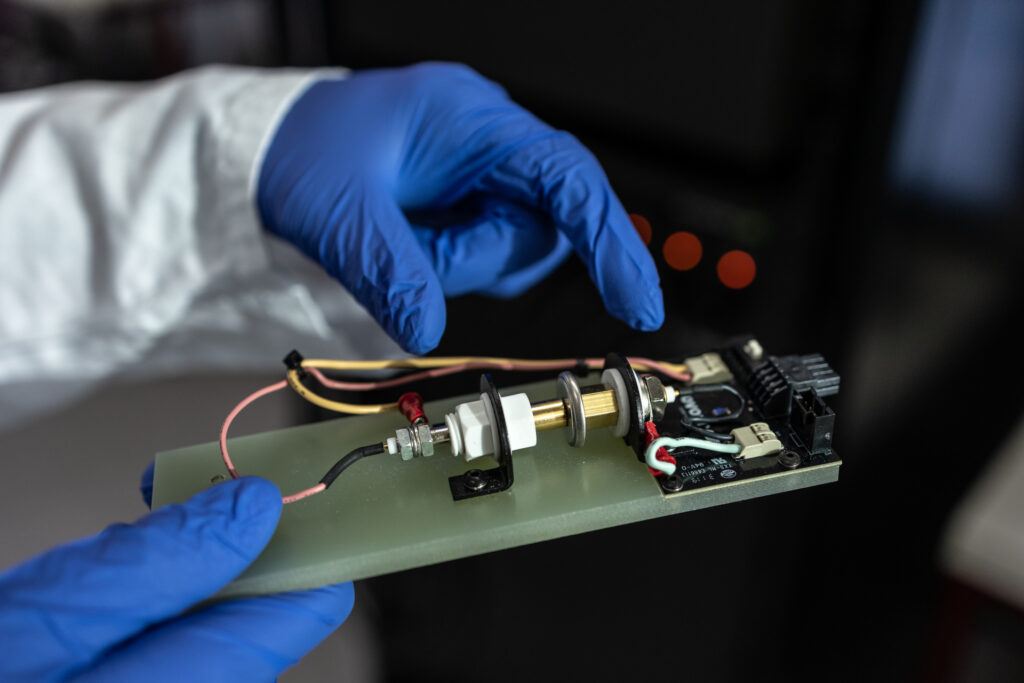CATRIN enters a European project to develop batteries of a new generation
The international project LESIA: Laser Engineered Surfaces/Interfaces for Advanced Batteries convened its first meeting to gather representatives of the research teams. The four-year project from the Marie Skłodowska-Curie Actions (MSCA) programme started officially on 1 March and, under the leadership of Aarhus University, will involve European partners from Denmark, Germany, Spain, Italy or Great Britain, as well as colleagues from Hong Kong and China acting as associate partners. The principal investigator for Palacký University is Radek Zbořil from CATRIN.
The aim of the project is to respond to one of the most important societal challenges, which is to find new green sources of sustainable energy. The LESIA project’s research team will be devoted to developing new generation batteries that will store green energy. Existing battery systems still suffer from low stored energy capacity, low recyclability rates and safety problems. The use of new electrode materials is therefore considered to be a necessary step for the development of a new generation of batteries. LESIA aims to create an innovative approach to battery development by laser and chemical treatment of electrode surfaces. On one hand, CATRIN’s researchers have years of experience in this area, on the other, the materials may face various limitations in practical applications.

“Our task will be to test the possibilities of graphene derivatives for electrode modification. In the past, we have demonstrated high efficiency of chemically modified graphene in many energy storage systems including supercapacitors, lithium batteries, but also in modern Li-S batteries. In cooperation with foreign partners, we want to combine new chemical and physical approaches to improve the properties of battery systems. With the help of a number of unique instrumental techniques available in various workplaces, we will study the phenomena on the phase interface between the electrode and the electrolyte, the understanding of which is crucial for the development of new generation batteries,” said the CATRIN-RCPTM Scientific Director Radek Zbořil.
The European Commission estimates that the value of the battery industry may reach €250 billion by 2025. The project, with a total funding of €358,800 and lasting until the end of February 2028, will therefore involve both academic institutions and private companies. In addition to the two universities mentioned above, other project partners are the Karlsruhe Institute of Technology, the University of Trieste, the Spanish National Research Council (CSIC) and CemeCon Scandinavia A/S. Tianjin University, the University of Warwick and the Hong Kong University of Science and Technology are associated partners who will also participate in research and exchanges of scientists.


